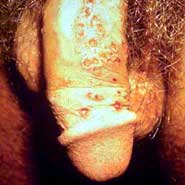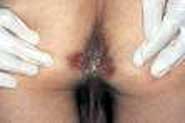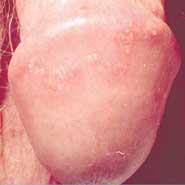
Dr. ROY MEDICAL HALL
Jaffer Khan Colony | Calicut | Kerala | IndiaSexologist Doctor - Sexology Clinic
+91 9349113791
Established in 1960

Dr. ROY MEDICAL HALL
Jaffer Khan Colony | Calicut | Kerala | IndiaSexologist Doctor - Sexology Clinic
+91 9349113791
 Genital herpes is a highly contagious sexually transmitted disease. Features of genital herpes include pain, itching, and sores in your genital area. The cause of genital herpes is a strain of the herpes simplex virus (HSV), which enters your body through small breaks in your skin or mucous membranes. Sexual contact is the primary way that the virus spreads.
Genital herpes is a highly contagious sexually transmitted disease. Features of genital herpes include pain, itching, and sores in your genital area. The cause of genital herpes is a strain of the herpes simplex virus (HSV), which enters your body through small breaks in your skin or mucous membranes. Sexual contact is the primary way that the virus spreads.
Signs and symptoms
 The majority of people who've been infected with HSV never know they have the disease because they have no signs or symptoms. The signs and symptoms of HSV can be so mild they go unnoticed. The first outbreak is generally the worst, and some people never experience a second outbreak. Other people, however, can experience outbreaks as long as 40 years after the initial outbreak.
The majority of people who've been infected with HSV never know they have the disease because they have no signs or symptoms. The signs and symptoms of HSV can be so mild they go unnoticed. The first outbreak is generally the worst, and some people never experience a second outbreak. Other people, however, can experience outbreaks as long as 40 years after the initial outbreak.
Genital herpes symptoms may include: -
Small, red bumps, blisters (vesicles), or open sores (ulcers) in the genital, anal and nearby areas
Pain or itching around your genital area, buttocks, or inner thighs
 The initial symptom of genital herpes usually is pain or itching, beginning within a few weeks after exposure to an infected sexual partner. After several days, small, red bumps may appear. They then rupture, becoming ulcers that ooze or bleed. Eventually, scabs form and the ulcers heal.
The initial symptom of genital herpes usually is pain or itching, beginning within a few weeks after exposure to an infected sexual partner. After several days, small, red bumps may appear. They then rupture, becoming ulcers that ooze or bleed. Eventually, scabs form and the ulcers heal.
In women, sores can erupt in the vaginal area, external genitals, buttocks, anus, or cervix. In men, sores can appear on the penis, scrotum, buttocks, anus or thighs, or inside the urethra, the channel between the bladder and the penis. Genital herpes is different for each person.
Causes
Two types of herpes simplex virus infections can cause genital herpes: -
HSV type 1 (HSV-1) This is the type that usually causes cold sores or fever blisters around your mouth, though it can be spread to your genital area during oral sex.
HSV type 2 (HSV-2) This is the type that commonly causes genital herpes. The virus spreads through sexual contact and skin-to-skin contact. HSV-2 is very common and highly contagious whether or not you have an open sore.
Complications
Contraction of other STDs: - Having genital herpes can increase your risk of transmitting or contracting other sexually transmitted diseases, including the AIDS virus.
Newborn infection: - A mother with open sores can spread the infection to her newborn as the infant passes through the birth canal. Genital herpes may result in brain damage, blindness, or death for the newborn. Mothers experiencing their first outbreak of herpes at the time of delivery are the most likely to transmit the infection to their babies.
Prevention
The suggestions for preventing genital herpes are the same as those for preventing other sexually transmitted diseases. The key is to avoid being infected with HSV, which is highly contagious while lesions are present. The best way to prevent infection is to abstain from sexual activity or to limit sexual contact to only one infection-free person.
Self-care
If you have an active infection: -
Avoid having sex.
Keep the sores clean and dry.
Avoid touching the sores, and wash your hands after contact with sores.
Remember that the virus can spread even when no symptoms are present. Wait until all sores are completely healed before resuming sexual activity, and always use latex condoms to reduce the chance that you'll infect your partner.
MOBILE
+91 93491 13791
+91 88484 73488
|
Click for Online Consultation Form
|